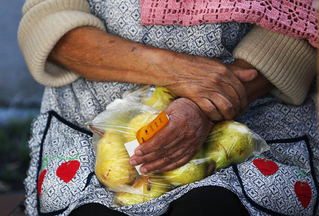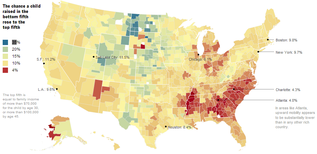Health Equity Related News
Why America is losing the health race
june 2014-the new yorker
Self-interest may be a natural human trait, but when it comes to public health other countries are showing the U.S. that what appears at first to be an altruistic concern for the health and care of the most vulnerable—especially children—may well result in improved health for all members of a society, including the affluent. Until Americans find their way to understanding this dynamic, and figure out how to mobilize public opinion in its favor, they will all continue to lose out on better health and longer lives. Read more
Minnesota department of health releases health equity report to legislature
february 2014
Read here
Who belongs to the lower middle class and why does it matter?
december 2013-The new yorker

In recent years, the cultural conversation about inequality has focussed on the rich and poor themselves...but the problem is structural. Over time, we have set up an economic system that breeds inequality. The good news is that the U.S. and many other countries also employ a system, called democracy, in which everyone—the ninety-nine per cent and the one per cent together—can demand that the government work to fix the problem. Read more
The social science behind obama's economic mobility speech
december 2013-the atlantic
In a speech Wednesday, President Obama sought to move past the old race-based discourse on poverty to an understanding of class stasis as a problem that transcends race. Though he's winning praise for strategic smarts, it's not just a political move: The underlying reality of American life really has changed, and certain socioeconomic experiences now transcend race, according to research from the Saguaro Seminar at Harvard's Kennedy School. Read more
The Lasting Impacts of Poverty on the brain
October 2013-The atlantic
That finding offered a glimpse of what poverty does to a person during a moment in time. Picture a mother trying to accomplish a single task (making dinner) while preoccupied with another (paying the rent on time). But scientists also suspect that poverty's disadvantages – and these moments – accumulate across time. Live in poverty for years, or even generations, and its effects grow more insidious. Live in poverty as a child, and it affects you as an adult, too. Read more
How poverty taxes the brain
august 2013-the atlantic
Researchers publishing some groundbreaking findings today in the journalScience have concluded that poverty imposes such a massive cognitive load on the poor that they have little bandwidth left over to do many of the things that might lift them out of poverty – like go to night school, or search for a new job, or even remember to pay bills on time. Read more.
Stress and Status
|
In climbing income ladder, location matters
|
Milwaukee poverty rates revealed.
June 2013-Milwaukee journal sentinel
About 35% of the workforce in the city of Milwaukee earn "poverty level wages," according to a report released June 2013 by the Center on Wisconsin Strategy. Read more
Unemployment is killing America's economically vulnerable women early.
May 2013-the guardian
Americans are living longer than ever but average lifespan of white, female high school drop-outs has plunged dramatically. Read more
Who lives longest?
march 2013-New york times
Researchers note: “Look at the countries with the highest average life expectancy...nations that distribute their health resources more evenly." Read more


